HR21 ACTIVITIES
Annual Retreat 2025
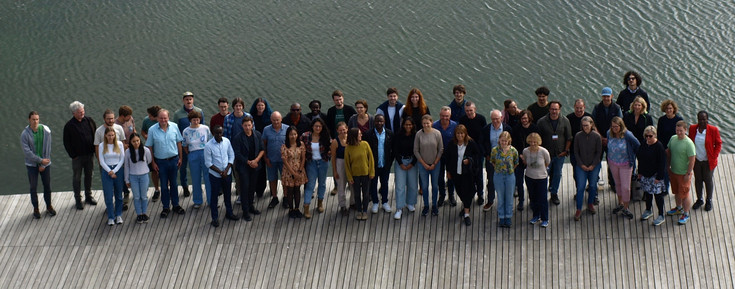
OLYMPUS DIGITAL CAMERA
HR21@ BOKU Ball 2025
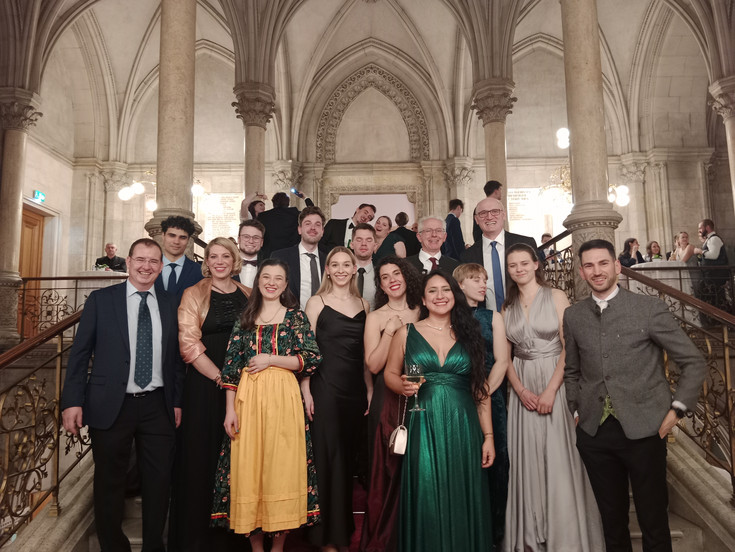
Press release October 2024
Here you can find the recent press release regarding “river landscape research: mitigating the effects of extreme events” (in german).
Annual Retreat 2024

3rd National Participation Day
At the 3rd National Participation Day - Austria: Waters 2040 our HR21 PhD students presented key messages regarding water-related challenges and contributed to the Stakeholder dialogue.

Annual Retreat 2023
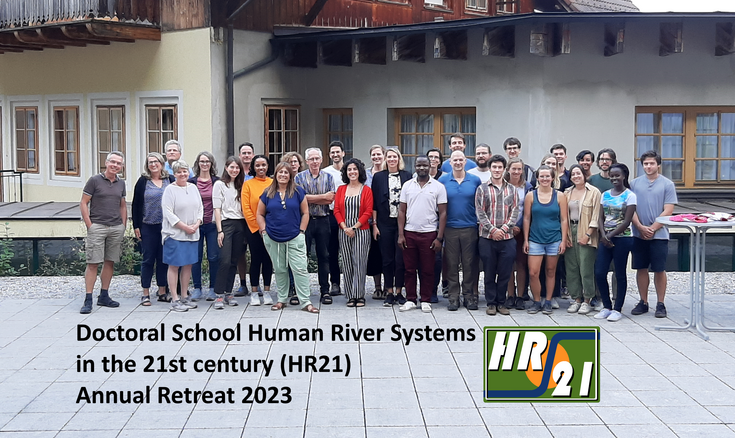
Annual Retreat 2021
The fourth Annual Retreat was held from September 22-24 in Hotel Althof Retz in Lower Austria.
Beside faculty and doctoral candidates two members of the HR21 scientific advisory board joined the retreat: Gregory Pasternack from the University of California and Courtney Flint from the Utah State University. Both gave highly appreciated and valuable feedback on research performed in HR21 and on their impression about the Doctoral School in general. In addition, Courtney Flint gave a scientific talk entitled “River Organizations as Social-Ecological Actors: Observations from the U.S. Intermountain West“.
As usual at the retreats, all doctoral candidates gave oral presentations about the progress in their research projects, followed by small group discussions allowing for detailed feedbacks of faculty and discussing potential new collaborations within the Doctoral School. In several sessions, the development of HR21 so far and new perspectives and improvements of the curriculum were discussed for the future. Furthermore, plans for intensified cooperation and joint project applications were made.
As socical activity a visit to the National Park Thayatal including a hiking trip along the river Thaya was organized.
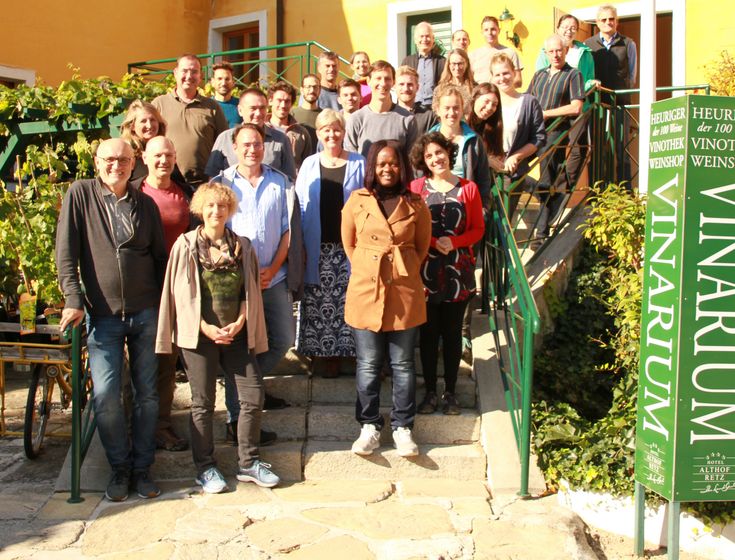
Annual Retreat 2020
The third Annual Retreat was held from September 2-4 in Hotel Nationalpark in Burgenland.
All doctoral candidates gave oral presentations highlighting the progress in their research projects. In addition, small group discussion in a world-café setting allowed for detailed discussions and feedbacks about results they achieved so far. Furthermore, potential interdisciplinary collaborations between doctoral candidates and faculty members for the upcoming years were identified.
External input was given by Prof. Teresa Ferreira from the University of Lisbon. As a member of the Scientific Advisory Board of HR21 she gave a scientific talk about future trends in river management and shared valuable insights and lessons learned from being involved in a structured and interdisciplinary doctoral program in Portugal.
Importantly, the retreat allowed for several discussion rounds among doctoral candidates and faculty reflecting on the achievements of HR21 in the last three years. Future goals and directions for further developments of the Doctoral Schools were identified.
To intensify personal contacts and to allow more informal and private discussions a bike-trip in the “Nationalpark Neusiedlersee” was organized.
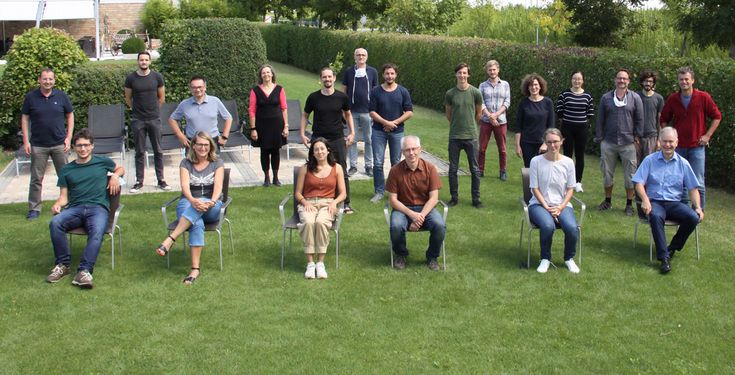
Joint workshop with the Nuclearwaters group of the PhD programme “History of Science, Technology and Environment” (KTH Stockholm, Sweden)
(planned for June 2020, postponed due to the Covid-19 crisis)
The ERC-funded project NUCLEARWATERS, headed by Per Högselius from KTH, develops a ground breaking new approach to studying the history of nuclear energy. Rather than interpreting nuclear energy history as a history of nuclear physics and radiochemistry, it analyses it as a history of water. The project develops the argument that nuclear energy is in essence a hydraulic form of technology. Further information >>>
The joint workshop is planned as a mixture of plenary talks by faculty members, student presentations and world-café discussions to identify common interests and develop concrete collaborations.
In addition, an expert excursion to the Zwentendorf Nuclear Power Plant is foreseen. This nuclear power plant was built in the 70’s but never entered service due to a referendum in 1978, preventing the operation of any commercial nuclear power plant in Austria. Nowadays it serves as a training center and offers guided tours to visitors.
Annual Retreat 2019
The second Annual Retreat was held from September 18-20 in Hotel Payerbachhof in Lower Austria. As an international expert Prof. Gregory Pasternack from the UC Davis, USA, was invited, giving an exciting plenary talk: “Haute Couture Design of channels and floodplains for ecosystem needs in the 21st Century”.
Prof. Pasternack stayed for the whole retreat and gave not only very important feedback to all the presentations of the doctoral candidates, but also to the faculty, highlighting his expertise from an interdisciplinary research group in the USA he was part of. In addition to the oral presentations, poster sessions were held to allow for more individual and intense discussions about the doctoral research projects.
The focus was on the individual progress of each PhD project and potential collaborations in methodological aspects and interdisciplinary settings within HR21 including faculty and PhD students.
Furthermore, feedback sessions among doctoral candidates and faculty reflecting on the achievements of the last year and discussions rounds for further developments in the upcoming year were held.
As a social activity an excursion including a guided tour to the “Wasserleitungsmuseum Kaiserbrunn” (Main Water Museum) was organized, followed by a hike along the river banks.
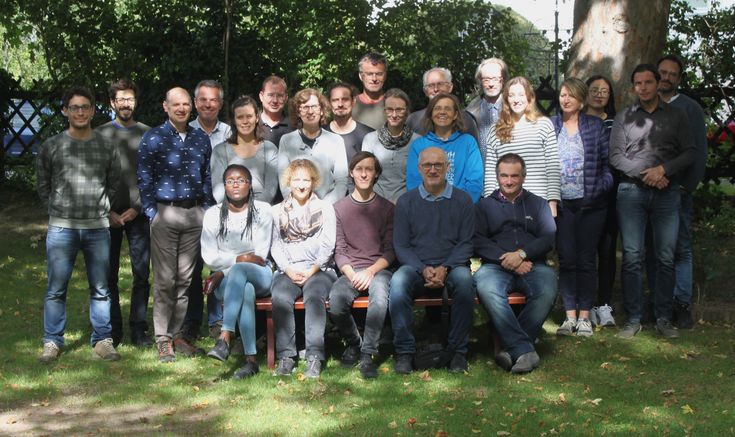
Special Conference Session – ISRS 2019
HR21 doctoral candidates have successfully organized a special session at the 6th Symposium of the International Society for River Science, September 8-15, 2019, Vienna.
https://boku.ac.at/wau/ihg/archiv/isrs-2019
The session outline and topic were jointly developed and 10 presentations were given by HR21 members and external experts.
SP06: Riverine landscapes under pressure - how much complexity is needed to perform integrative research?
Convenors: Bernhard Pucher (BOKU Vienna, Austria), Lena Simperler (BOKU Vienna, Austria), Matthias Pucher (BOKU Vienna, Austria), Peter Flödl (BOKU Vienna, Austria), Thomas Hein (BOKU Vienna, Austria)
Riverine landscapes are complex systems providing a variety of ecosystem services. Among others, pressures from land use change, energy procurement and urbanisation lead to heavily modified systems. To address drivers of change within socio-ecological systems at different spatial and/or temporal scales integrative approaches are necessary. This can open up methodological “black boxes” between different disciplines and thereby lead to a deeper understanding of the tight, but complex interactions between society and environment. Integrating more disciplines however leads to higher complexity (e.g. concepts, methods), raising the question of the optimal degree of complexity. In this interactive session, the approaches to integrative research and its implications on society and environment, policies and management options of riverine landscapes shall be discussed by oral and poster presentations.
Annual Retreat 2018
The first Annual Retreat was held from September 19-21 in Hotel Steinschaler Dörfl in Lower Austria. Beside the discussions about the doctoral projects, the focus was on further development of the programme, focussing on the course structure and the organization of the Doctoral School. During mapping activities both faculty and doctoral candidates positioned themselves in a triangle formed by the three interdisciplinary pillars of HR21: natural sciences, technical sciences and social sciences. In concurrent discussions future steps necessary to bring one’s own position more toward the center of the triangle were exploited.
Feedback sessions with the doctoral candidates were held in order to perfectly adjust the training programme to their needs. In a final discussion round, future joint activities were discussed and planned.
To allow for more informal and private discussions between doctoral candidates and faculty members team ice curling was organized as a social activity. HR21 sees this as a valuable way to intensify personal contacts, allowing to detect common research interests and to open up the door to share expertise among all members.
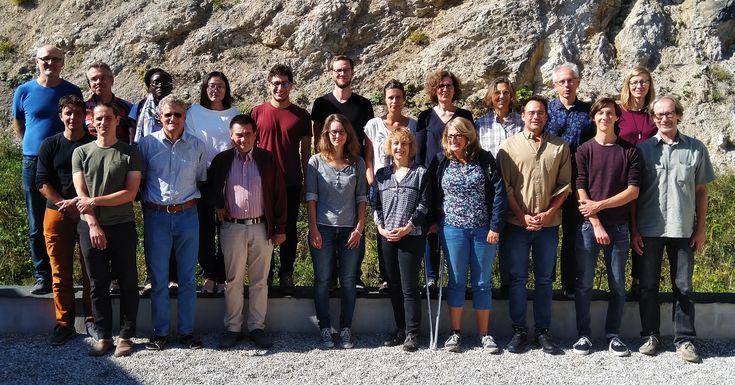
Guest lectures within in the frame of “Integrative & Interdisciplinary Research Forum”
IIRF offered an introduction to interdisciplinary research. Theoretical foundations and approaches were presented; moderated group and plenary discussions focused on possible research questions, appropriate concepts and methods, and the framing of research projects. The course also dealt with the necessity of interdisciplinary research to contribute to the solution of social challenges. Three guest lecturers were involved in the IIRF 2018.
Didier Pont, IRSTEA France (currently guest scientist at IHG) presented an interdisciplinary study on the river Drome in France: The Drome river: from questions arising from the society to an interdisciplinary research project in environment.
Tom Buijse from Deltares, Netherlands, presented the results of a European research project dealing with river restoration as a societal task: Heavily modified river ecosystems: what is at stake and how can we repair?
Andreas Muhar, ILEN/BOKU, finally contributed theoretical findings on human-nature relationships: Human-Nature Relationship Concepts: Relevance for Design of Research Projects and for understanding individual behavior.
Based on these presentations and discussions, the participants summarized in the closing course how the rivers presented were treated as coupled social-ecological systems, which scientific and societal problems were addressed (scientific, societal ...) and how the input could be embedded in a social-ecological framework of their own research projects.
